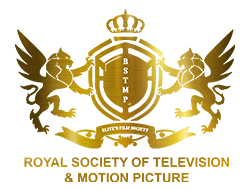
NEW GERMAN CINEMA
NEW GERMAN CINEMA
Der alte Film ist tot. Wir glauben an den neuen. Means – “The old cinema is dead. We believe in the new cinema.”
The term “New German Cinema” is usually applied to a loose grouping of films that were made in West Germany (FRG) during the 1960s, 1970s and early 1980s. It saw the emergence of a new generation of film directors. By grouping together, these films clearly resist generic delineation and are in fact marked by their stylistic and thematic diversity. Film critics have identified three common elements between that unite them all. Firstly, all the film directors were born during the time of the Second World War, they grew up in a divided Germany, and so can be characterized as a generation. Secondly, due to the funding criteria and opportunities, the ‘new cinema’ was based on an artisanal mode of film production which facilitated close collaborations and a high degree of experimentation. And thirdly, the films shared a concern with contemporary West German reality on one hand and a search for film audiences and film markets on the other hand.
Internationally, the New German Cinema was heralded as the most promising development in cinema since German Expressionism, and a handful of its film directors – especially Wim Wenders (born 1945), Rainer Werner Fassbinder (1945-82), Werner Herzog (born 1942), and more recently Edgar Reitz (born 1932) – have won international reputations. In Britain and the US awareness of the New German Cinema began to grow during the mid-1970s via various magazine and television reports. These early accounts tended to suggest that this new phase in the history of German cinema had been brought into being solely through the endeavors of a small number of talented and dedicated young film directors. As a reaction to the artistic and economic stagnation of German cinema, a group of young filmmakers issued the Oberhausen Manifesto on February 28, 1962. This call to arms, which included Alexander Kluge, Edgar Reitz, Peter Schamoni, Haro Senft and Franz-Josef Spieker among its signatories. Other younger filmmakers also allied themselves to this Oberhausen group. Filmmakers namely Volker Schlöndorff, Werner Herzog, Jean-Marie Straub, Wim Wenders, Hans-Jürgen Syberberg and Rainer Werner Fassbinder rejected the existing German film industry and was determined to build a new industry based on artistic excellence rather than commercial dictates.



Sorry, the comment form is closed at this time.